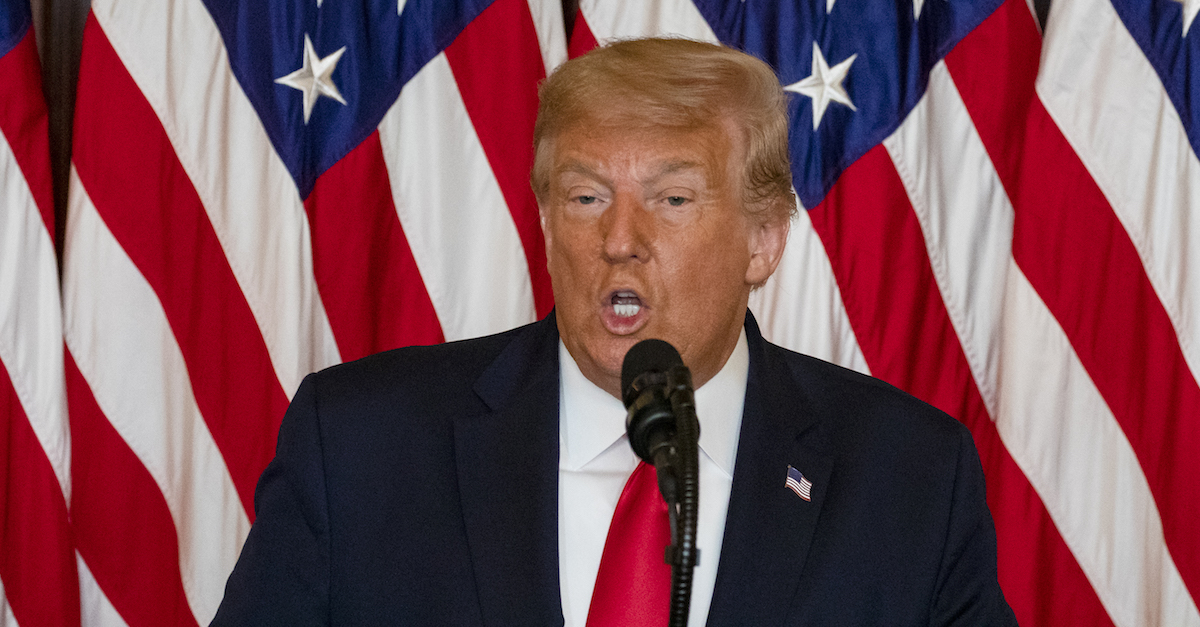
A federal appellate court on Monday sided with the Trump administration in its effort to terminate humanitarian protections for approximately 300,000 refugees from Haiti, Sudan, Nicaragua, and El Salvador, ruling that the administration can legally end their Temporary Protected Status (TPS). The 2-1 decision from the U.S. Court of Appeals for the Ninth Circuit overturned a district court ruling. The lower court had emphasized that President Donald Trump’s references to those such nations as “shithole countries” was evidence that the decision may have been based, at least in part, on racial animus. The Ninth Circuit decided differently, citing a “glaring lack of evidence […] linking the President’s animus to the TPS terminations.”
All four of the aforementioned countries were set to lose their TPS designation when the administration announced that it did not plan on renewing their protected status like past administrations, taking a literal approach to the “temporary” qualifier. The plaintiffs in the case are TPS beneficiaries who had cited to Trump’s racially discriminatory comments to argue that the administration’s decision was motivated by the president’s preference for white European immigrants.
The Ninth Circuit reasoned that Department of Homeland Security (DHS) Secretary is empowered with extremely broad discretion to make such policy changes, vacating the district court’s injunction preventing enforcement of the policy.
“The Secretary’s discretion to make TPS determinations, while not without check, is undoubtedly broad and unique in nature,” Circuit Judge Consuelo Callahanwrote in an opinion that was joined by Circuit Judge Ryan Nelson. “The decision to designate any foreign country for TPS begins and ends with the Secretary, so long as certain limited statutory criteria are met.”
Callahan is a George W. Bush appointee; Nelson is a Trump appointee.
The court also rejected plaintiffs’ claims that Trump’s discriminatory comments, which included reports of him saying that immigrants from Haiti “all have AIDS,” violated the Equal Protections Clause (EPC). The court reasoned that the comments were not enough evidence to illustrate that racial discrimination was at least “a motivating factor” for the administration’s ultimate decision.
“Here, Plaintiffs’ EPC claim fails predominantly due to the glaring lack of evidence tying the President’s alleged discriminatory intent to the specific TPS terminations—such as evidence that the President personally sought to influence the TPS terminations, or that any administration officials involved in the TPS decision-making process were themselves motivated by animus against ‘non-white, non-European’ countries,” the court wrote. “While the district court’s findings that President Trump expressed racial animus against ‘non-white, non-European’ immigrants, and that the White House influenced the TPS termination decisions, are supported by record evidence, the district court cites no evidence linking the President’s animus to the TPS terminations.”
Professor Michael Kagan, Director of the Immigration Clinic at UNLV School of Law, said the latter sentence was “one of the most distressing” he’s seen from a court in recent years.
Tom Jawetz, the Vice President of Immigration Policy for the Center for American Progress, a liberal group, likened the opinion to some of the most reviled court decisions in U.S. history.
“Future generations will liken the Equal Protection jurisprudence developed in Trump v. Hawaii; DHS v. Regents; and Ramos v. Wolf to the Supreme Court decisions in Korematsu, Plessy, and Dred Scott,” he tweeted.
Read the full decision below:
Ninth Circuit TPS Opinon by Law&Crime on Scribd
[photo by Samuel Corum/Pool/Getty Images]